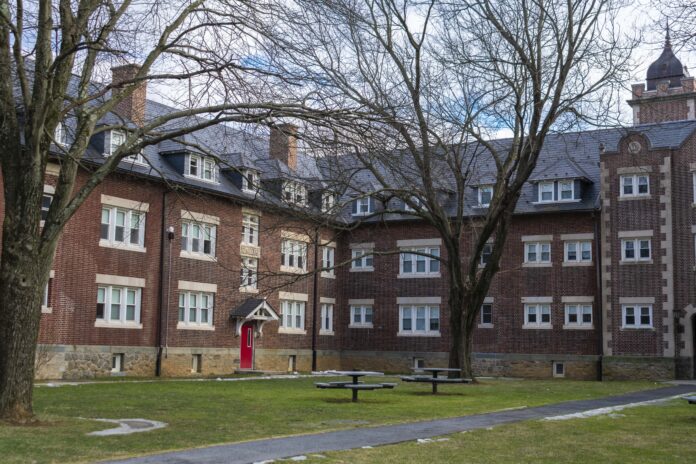
A professor stands at the lectern, intensely observing the classroom. As the sole authority figure potentially determining your academic fate in a field of study, their very presence can be intimidating. Would this intimidating aura change if students encountered their professors in the residence halls? Muhlenberg wants to find out by creating opportunities for students and professors to interact in casual settings.
Housing and Residence Life (HRL) has developed a plan to facilitate connections between faculty and students without even having to leave their dorm. A faculty engagement initiative was proposed to the College Committee on Campus Life in the fall 2021 semester, however, the HRL team has been working on this program for a while. The initiative would help “explore the opportunities and spaces for more organic interactions between professors and students that doesn’t entail a lecture or group work,” says Courtney Stephens, assistant dean of students and director of Housing and Residence Life.
Stephens emphasizes that as a community in which almost all students live on campus for all four years of their undergraduate education it is important to expand learning beyond the classroom. She notes that the goal of the program is quality not quantity, and emphasizes the ultimate goal of students and faculty establishing stronger connections. Some potential programming includes professors teaching passion area classes, attending building events, study halls in the dorms, career readiness programming, engaging with students through other interests such as cooking or a movie night, and being a guest on an HRL Instagram Takeover.
This program is not unique to Muhlenberg, other institutions have been implementing similar initiatives in recent years, and they have been proven to have positive results. Faculty-student interactions are vital to not only the success of students, but also the critical thinking skills, mental health, and college retention rates. Research done at Bowling Green State University suggests that when students interact with faculty outside of class time it can positively affect students’ learning in the classroom. And research published in the College Student Journal found that increasing interactions between faculty and first year students enhanced their learning and even increased their openness to diversity and their self confidence in learning and academic success.
I THINK IT’S a little invasive if these events were to take palce at spaces such as lounges on floors and spaces where students live [and regularly] PASS THROUGH.
Dani Medvedovski ‘24
Dani Medvedovski ‘24, a Resident Advisor in Prosser Hall, sees the value of this programming, especially for underclassmen. She notes that first year students—who have not yet routinely interacted with professors to create strong connections—would most likely be the most receptive to these programs at Muhlenberg.
“However, I think some buildings are better suited for these programs than others,” said Medvedovski, noting that Prosser Hall and Martin Luther Hall are ideal spaces because they include separate lounges secluded from residential rooms. “I think it’s a little invasive if these events were to take place at spaces such as lounges on floors, and spaces where students live [and regularly] pass through.”
Medvedovski hopes to see de-stressing activities such as yoga and meditation rather than workshops, “I’d rather see events that take students’ minds off their workload as the semester gets more stressful.”
Lindsay Sherrick ‘25 would love for the initiative to allow her to explore the activities and passions she does not get to experience in her classes, like crafting. “I know that’s something I would like to do because I love doing art,” she explains, “but I don’t take any classes in it at Muhlenberg.”
Though this initiative was not motivated by COVID, the pandemic along with the pivot to Zoom classes and online events has made it difficult for students and faculty to form the same type of relationships as in previous years.
Learning is often associated with only taking place within the classroom. A residential curriculum broadens that definition to also include educational opportunities.
Courtney Stephens
“We are continuing to work with different committees on campus that involve both faculty and staff, and are also connecting with the Dean of Academic [Life] and Dean of Students to make intentional next steps to make this as robust a program as possible,” Stephens adds, noting that while there is no launch date scheduled currently, they are excited to share more details about the program as it continues to develops.
“Learning is often associated with only taking place within the classroom. A residential curriculum broadens that definition to also include educational opportunities.”





















